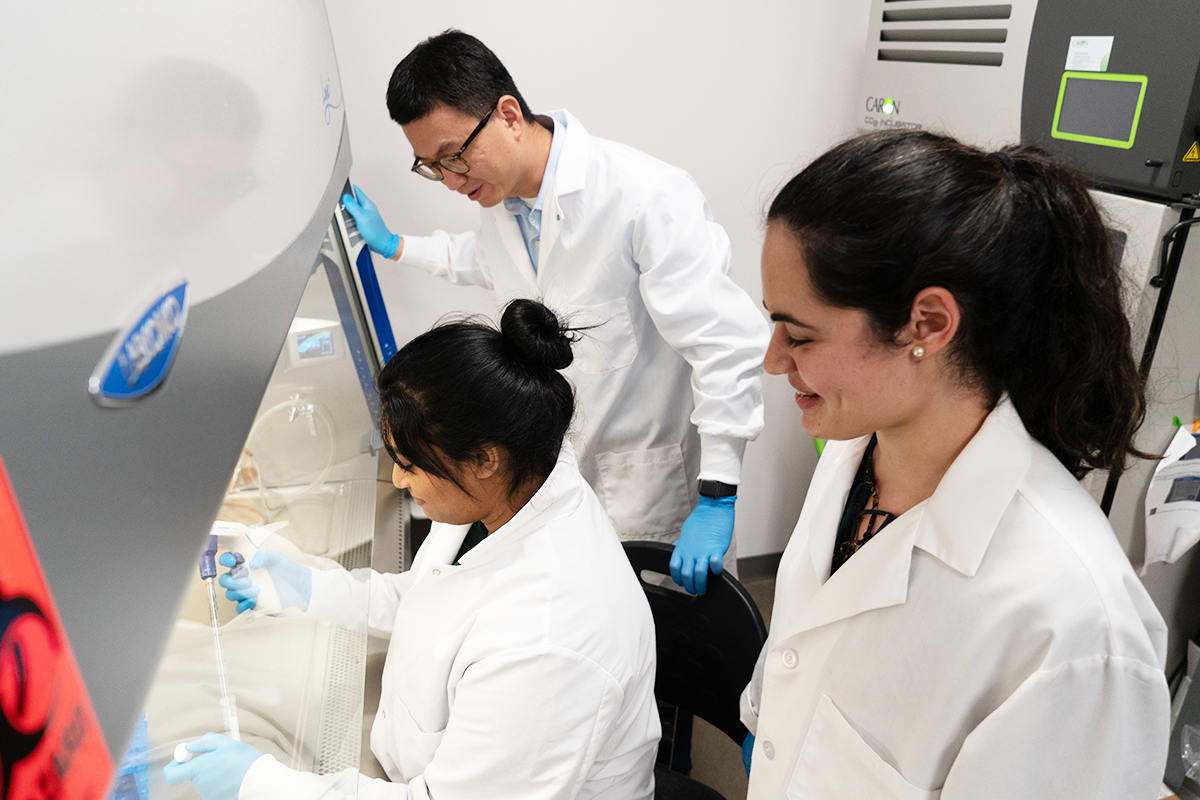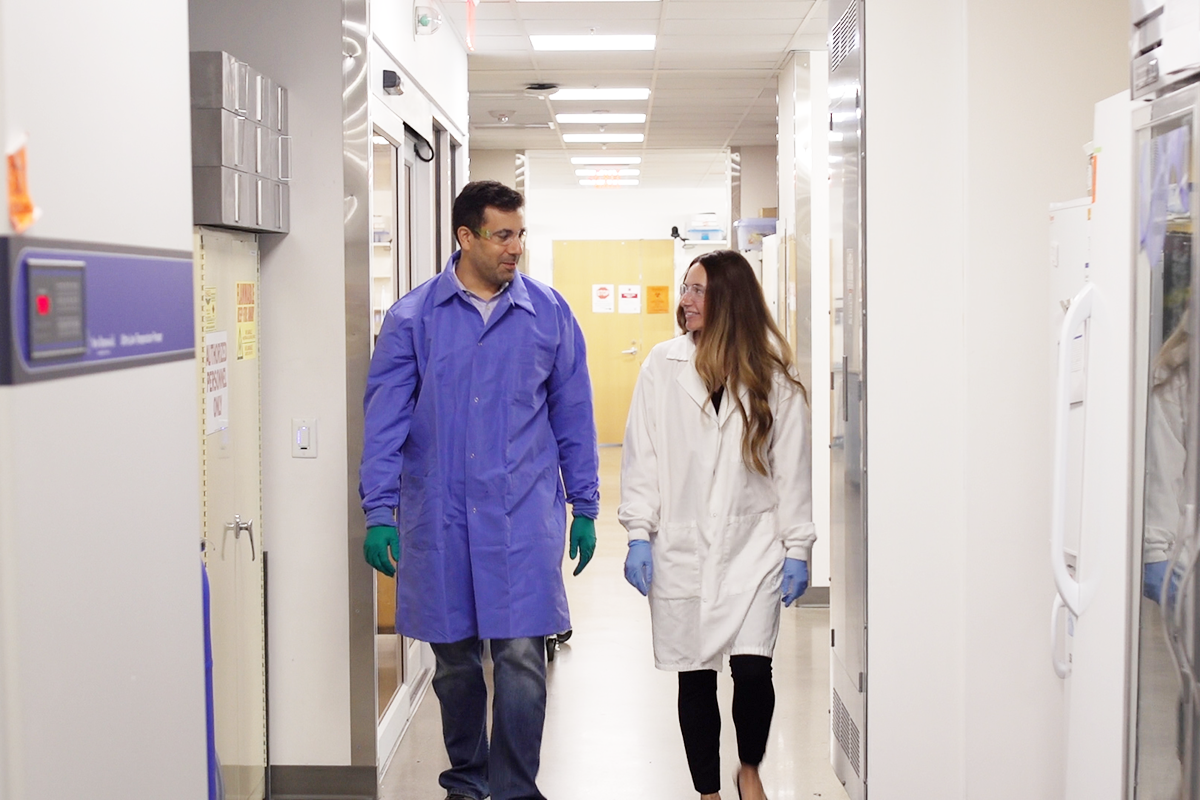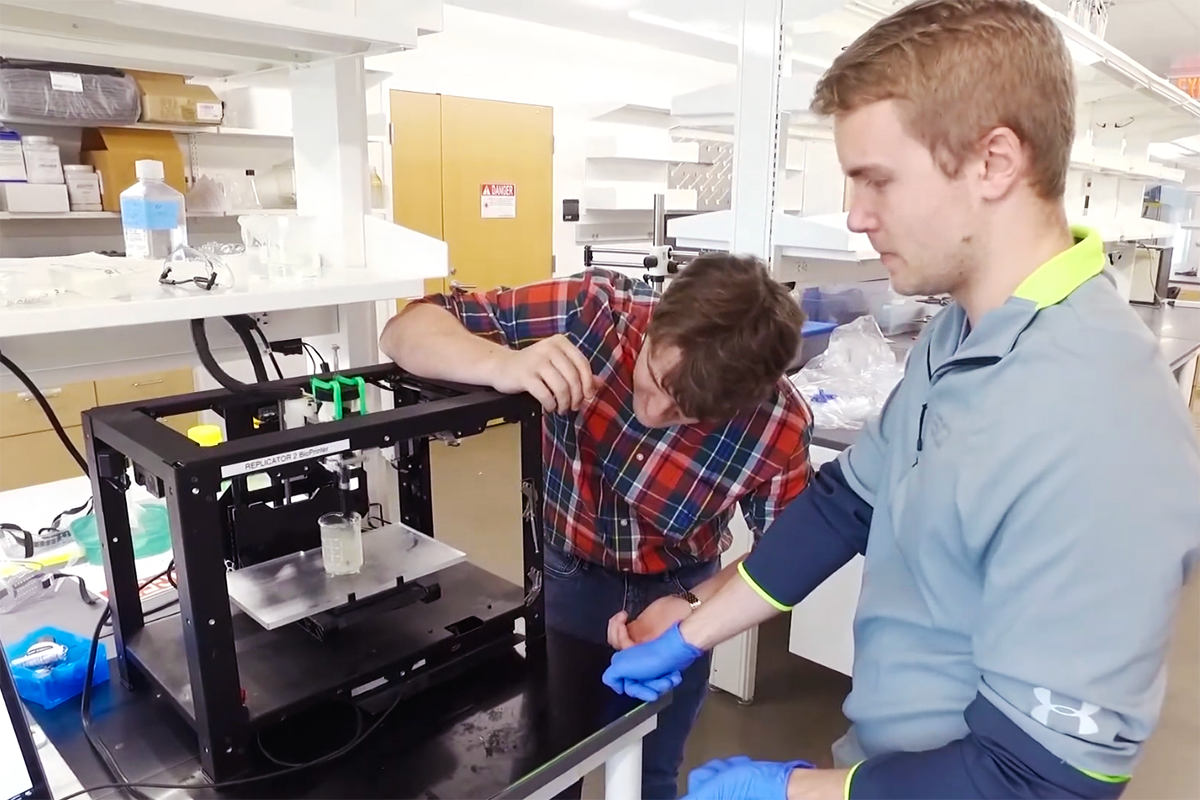Transforming healthcare
The Department of Biomedical Engineering's (BME) graduate program features an interdisciplinary research and training approach. Its world-class faculty deliver cutting-edge education and are often cross-appointed in multiple departments, enabling students to collaborate with experts and fellow students in various fields, including engineering, physics, biology, neuroscience, robotics, computer science, and machine learning. This collaborative effort ensures an unparalleled graduate education for BME students.
Application periods
- Fall
- Ph.D. - October 1st through December 1st
- Master’s - October 1st through January 31st
- Spring
- Ph.D. and Master’s - July 1st through August 31st

Doctor of philosophy degree programs
- Ph.D. in Biomedical Engineering
The Biomedical Engineering Ph.D. program is designed to nurture the next generation of leaders in biomedical engineering, preparing students for careers in academia and industry. Flexible degree requirements allow students to balance breadth and depth and develop a research plan best suited to their career goals. - Combined Ph.D. in Biomedical Engineering - Doctor of Medicine
The Department of Biomedical Engineering participates in a combined M.D.-Ph.D. program, offering a Doctor of Medicine degree from the University of Pittsburgh School of Medicine and a Ph.D. in Biomedical Engineering from Carnegie Mellon University. The aim is to allow physician-engineers to blend research and clinical perspectives in treating patients.

Master’s degree programs
- Master of Science in Biomedical Engineering
The Master of Science in Biomedical Engineering is designed to build both depth and breadth of knowledge in the field. The program appeals not only to students from standalone biomedical engineering programs but also to students of traditional engineering or basic science disciplines who wish to develop a career in biomedical engineering. - Master of Science in Biomedical Engineering - Applied Study
The Master of Science in Biomedical Engineering - Applied Study program combines in-depth, course-based academic training with real-world experiences. Students elect to take part in an internship, practicum, or research as part of the degree requirements. - Master of Science in Biomedical Engineering - Research
The Master of Science in Biomedical Engineering - Research is designed to equip students with a unique blend of advanced knowledge in biomedical engineering and independent research skills. The program offers comprehensive course-based academic training, along with an in-depth, hands-on research experience. - Master of Science in Artificial Intelligence Engineering - Biomedical Engineering (MS in AIE-BME)
The Master of Science in Artificial Intelligence Engineering - Biomedical Engineering offers students the opportunity to become experts in the AI and Biomedical Engineering domains. Students learn to integrate AI/machine learning approaches with engineering design and system analysis to develop effective solutions to challenging biomedical engineering problems. - Master of Science in Artificial Intelligence Engineering – Biomedical Engineering - Research
The Master of Science in Artificial Intelligence Engineering - Biomedical Engineering - Research program supplements course-based academic training in AI and biomedical engineering with an in-depth, original research experience. Research experiences may include collaborations with clinical and research institutes such as the University of Pittsburgh Medical Center (UPMC), Allegheny Health Network (AHN), and the Mayo Clinic. - Dual Master of Science in Biomedical Engineering and Engineering & Technology Innovation Management
The Dual M.S. in Biomedical Engineering and Engineering and Technology Innovation Management educates future engineering leaders by providing frameworks to foster and manage technical innovation. The Master of Science in Biomedical Engineering program may be combined with the Engineering and Technology Innovation Management program to form a 21-month dual master of science program encompassing two highly interdisciplinary, complementary, and innovative fields.

Student experience
Biomedical Engineering graduate students join a global community of scholars and researchers, fostering diversity and collaboration. Students are encouraged to enhance their professional and technical skills through active participation in Carnegie Mellon’s student organizations.
